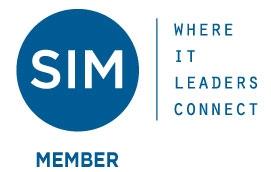Pat Marafiote is a delivery-focused senior technology leader with leadership experience at leading Fortune 500 and Financial Corporations including Morgan Stanley, Bridgewater Associates, PepsiCo, Bristol Myers Squibb, Aon, and Oxford United Health Plans. He also has international consulting experience in technology planning at Coopers & Lybrand (PwC).
- Delivery leadership experience has spanned both software development and infrastructure.
- Consistent success working with all levels of stakeholders including C level.
- Proven track record of transforming teams to achieve consistent delivery of technology aligned with business needs
- Current on delivering the latest technology including DevOps and Cloud solutions.
- Certified Scrum Master with extensive experience in all major SDLC methodologies.
The following principles have guided success at these organizations. Please review the resume link above for additional details on career experience.
Program "GPA" - Governance, Process and Assessment
Technology programs succeed when you have strong governance and responsibilities, clear processes, and the right assessment, monitoring and communication tools to ensure that projects and programs are tracking to their objectives and all stakeholders are aligned on meeting program goals.
Governance
Successful projects require clearly defined responsibilities to keep sponsors, stakeholders, project team members, and vendors aligned on delivery goals, scope, requirements, resources, costs, and timelines. Failure to define and maintain strong governance opens the door for scope mis-alignment, deliverables that do not meet requirements, and cost overruns. Well-managed programs maintain stakeholder registers with roles and levels of accountability defined and steering and change control processes fully understood.
Process
Success in technology delivery includes identifying the characteristics of the deliverables and the project team, then rightsizing project management processes to ensure efficiency, stakeholder alignment, and consistent delivery. The methodology for managing deliverables should reflect the nature of the work and team. Some projects are more effective with short delivery cycles using agile methodologies while others may be better suited for traditional waterfall project methodology, or a combination of multiple methodologies. It's important to assess the project team, stakeholder expectations, nature of the the deliverables, and other driving factors - such as date requirements, regulations, vendor engagement, and global characteristics of the team to determine which project management methodologies will best meet the needs of the project. All project stakeholders should understand how the project will be managed and be in agreement on the delivery processes.
In addition to delivery methodologies, governance requires strong change management processes. Sponsors and stakeholders should understand their responsibilities for steering the project, changing scope, and resourcing and funding. These processes should be lean, but clearly defined and understood. The goal in effective governance is to deliver what the sponsor requires, with schedule, funding and resources in line with their expectations. There should be no surprises if governance is well-managed.
Assessment
Programs and projects can range from weeks to years in duration. To keep them on track, reporting and communication must be established to provide transparency for sponsors, stakeholders, project team members, and vendors so that they can monitor the success of projects in meeting goals and objectives. Good program metrics should include frequent monitoring and reporting of team effectiveness, schedule alignment with baseline planning, funding, resource management, and risk and issue reporting including impacts. Good metrics minimize surprises and keep all stakeholders informed on how healthy a program or project is.




